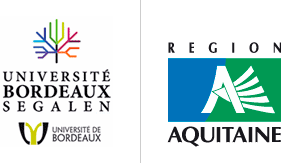Poster presentation, P71
Official XXIst International Pigment Cell Conference website - 21-24 Sept 2011, Bordeaux - France | updated: September 04 2011
Comparison between autologous non-cultured epidermal cell suspension and suction blister epidermal grafting in stable vitiligo: a randomized study
| SPEAKER | A. Budania #whois submiter ? |
| AUTHOR(s) | A. Budania, D. Parsad, A.J. Kanwar, S. Dogra |
BACKGROUND AND OBJECTIVES: Vitiligo is an acquired disorder of pigmentation due to loss of epidermal melanocytes. Various modalities of treatment (both surgical and medical) are available. Amongst the surgical modalities, autologous non-cultured epidermal cell suspension -ANCES (a cellular grafting technique) and suction blister epidermal grafting -SBEG (a tissue grafting technique) gives promising results. We compared the two techniques, ANCES and SBEG in producing repigmentation in stable vitiligo patients, which, to best of our knowledge, is the first study in the literature. METHODS: We randomized 20 patients with 27 stable vitiligo lesions into two groups. Patients in group one were treated with ANCES, while in group two with SBEG. They were evaluated 16 weeks post surgery for the extent of repigmentation, colour match, change in DLQI and patient satisfaction. RESULTS: Repigmentation results were excellent (showing > 90% repigmentation) in 71.4% of lesions in ANCES group while 15.4% of lesions in SBEG group (p=0.003). 92.9% lesions in ANCES group and 46.2% lesions in SBEG group showed > 75% repigmentation (p=0.008). There was a significant decline in DLQI in both the groups, also the mean decline amongst groups differed significantly (p=0.019); the mean decline in DLQI was 7.8 and 4.3 in ANCES and SBEG groups respectively. No significant difference was seen in colour match. The diffuse pigmentation was the most common pattern of repigmentation. Adverse effects were minimal. CONCLUSION: ANCES is significantly much better than SBEG and should be preferred in the treatment of stable vitiligo patients.

